Jenny Mitchell
A Man in Love with Plants
How to remember a beloved who died tragically, violently? Remember the violence? Sometimes, yes. But also this: remember his love of flowers.
We’re pleased to offer Jenny Mitchell’s poem, and invite you to connect with Poetry Unbound throughout this season.
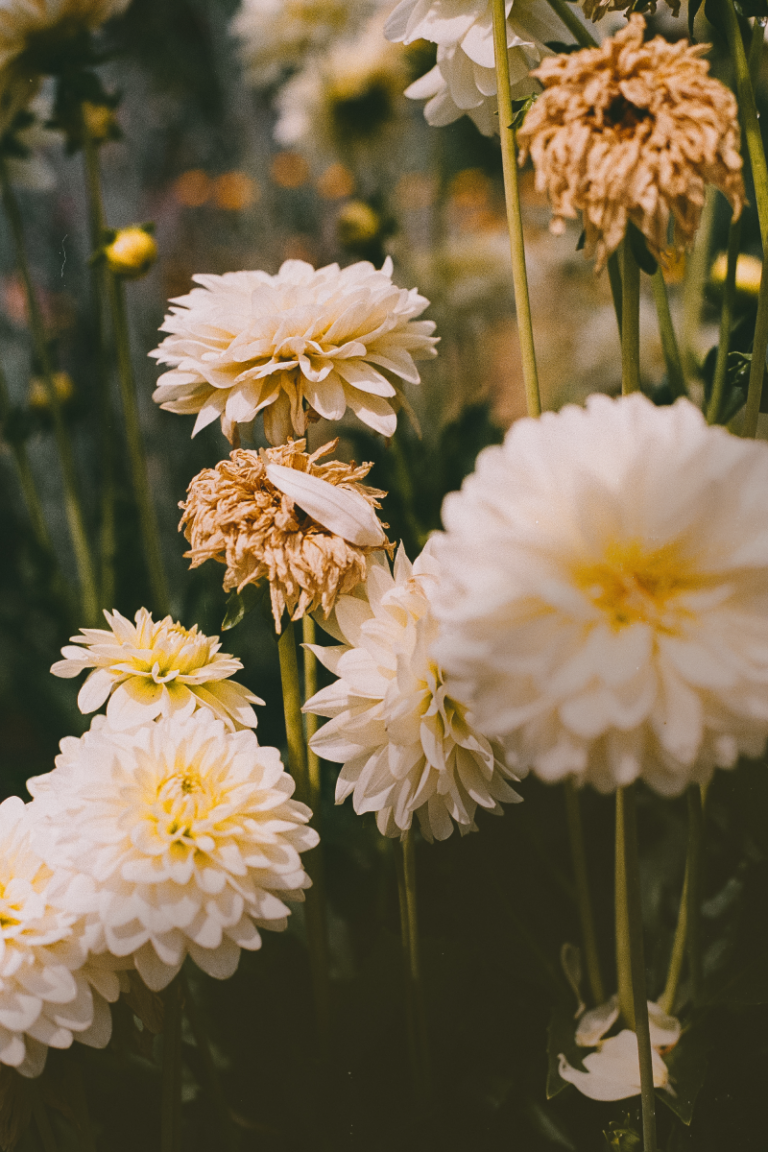
Image by Annisa Hale/ Film processed by Moody's Film Lab, © All Rights Reserved.
Guest
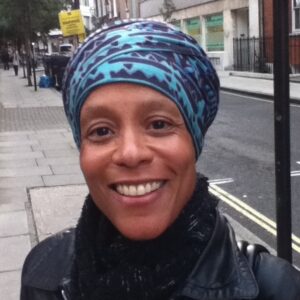
Jenny Mitchell is the author of the poetry collections Her Lost Language (Indigo Dreams Publishing, 2019) and Map of a Plantation (2021). Her latest collection, Resurrection of a Black Man (2022), is a Poetry Kit Book of the Month. Mitchell is a winner of the Poetry Book Awards and joint winner of the Geoff Stevens Memorial Prize. She is also a recipient of the inaugural Ironbridge Prize, the Bedford Prize, and the Gloucester Poetry Society Open Competition.
Transcript
Transcription by Alletta Cooper
[music: “The Edge of All There Is” by Gautam Srikishan]
Pádraig Ó Tuama: My name is Pádraig Ó Tuama, and I’m always amazed when a poet can write about something very difficult and do it in partnership with something that is filled with beauty. And today’s poem, “A Man in Love with Plants” by Jenny Mitchell, is one such poem, because it’s a poem that recalls the murder of an uncle and puts that alongside the uncle’s love of plants. And neither the brutality nor the beauty are diminished by being put alongside each other. There’s no sense of ease or lightening the load of guilt upon whomever had done this. But there is a way of bearing witness to an uncle who died and who loved plants. To do this in this powerful way I think is a reclamation of the public power of tender language, and that that in itself is an extraordinary demonstration of strength.
“A Man in Love with Plants” by Jenny Mitchell
“I’ll start this by transforming his last words.
Help me, please! becomes I have gone upon a mission.
That’s how my uncle spoke, each word precise,
although he did not have much
education, his childhood drab as dirt
assailed the floorboards of a leaning shack.
“Outside his final house, he worships life
held in hibiscus buds, red as new-
spilt blood. Roses shade the path.
Yellow orchids make him beam,
jasmine does the same even when
a gang plucks his last breath.
“He lies as if awake, feet aimed up at the ceiling,
hole gaping through his golden suit –
self-made, a tailor since a child
in love with floral cloth. I know
he’d seek more plants to bless
his garden-church beyond the house.”
[music: “First Grief, First Air” by Gautam Srikishan]
I love this simple, heartbreaking, beautiful poem by Jenny Mitchell. It’s from a book called Resurrection of a Black Man. And that book portrays male family dynamics, and there’s a section looking at sons and fathers and grandfather, and then the final section looks particularly at her uncle. Her uncle was murdered for being gay. And this final part of the book is all about this uncle, Sidney is his name. And we get to know him throughout a variety of the poems. And some of them are really painful, and some of them are really tender. And you get to hear about his love for movie stars and his experiences of religion, where he learned strong language, and how he died.
In the poem here, you’re introduced to him in the title, “A Man in Love with Plants.” How gorgeous. What a lovely way to live your life. And his precision in language, too: “I have gone upon a mission.” And then she says, “That’s how my uncle spoke, each word precise.” And we hear that his background hadn’t been one where education was provided easily. We hear that he’s a gardener, and we know that from the title anyway. And then hibiscus buds, roses, orchids, jasmine. And that he’s a tailor, too, “in love with floral cloth.” And we realize that plants for him are a way of blessing, and the garden is his church.
I really like this man. I’m curious about him. I’m curious about his strength, about his particularity, about his love of language, his adorning of his own life with beauty in a way where perhaps he knew that that was to attract threat, but that he lived it with his own integrity, his own love of beauty, and he surrounded himself like that.
[music: “Family Tree” by Gautam Srikishan]
The title of the book is Resurrection of a Black Man. And “resurrection” is a word that requires death in order for life to come again. And in this poem, death and life are present in every stanza. It’s in three six-line stanzas, so it’s a short poem of 18 lines in itself.
And the first stanza refers quietly, but very clearly to his death in the opening line, his last words. “I’ll start this by transforming his last words.” And then on the second stanza, there’s this amazing mix between horticultural information together with words that have so much weight. “Roses shade the path. / Yellow orchids make him beam, / jasmine does the same even when / a gang plucks his last breath.” To use the verb “pluck” — like you’d pluck a flower — to last breath and to put the word “pluck” associated with the noun “gang.”
There’s such a deliberate putting of words alongside each other where you feel drawn into the tension of death and beauty alongside each other. And even back a little bit in that same stanza, speaking about hibiscus buds: “red as new- / spilt blood.” In a different poem, you could just think, “God, that’s a strong simile.” But in this poem, we find ourselves not only thinking about the red of hibiscus bud, but also about the blood of a man who’s just been murdered as well.
And in the final stanza: “He lies as if awake.” And I find myself thinking, is he in a coffin, or is this about when he was found? And his golden suit with a hole gaping through it, of this floral pattern. And his body is shrouded in a suit he’d made. And it returns to plants: “I know / he’d seek more plants to bless / his garden-church beyond the house.” And where’s “the garden-church beyond the house?” A little bit past the place where he lived? His own country? The world? The world of people who face threat because of their sexuality? Where is this “beyond the house?” I find myself thinking that that expands the whole world over in the generous imagination of who this man was and what his presence to his own life bears witness to.
[music: “At Dusk” by Gautam Srikishan]
The 18 lines of this short poem are filled with religious language, particularly Christian religious language. Even from the first line: “transforming” is a verb that’s used. And then we hear about last words and “gone upon a mission.” “He worships life,” “red as new- / spilt blood.” And then “his last breath” and “beam.” Thinking about the beam of crucifixion. And “golden” makes me think of promises that you find in the book of the apocalypse about golden streets. And then “plants to bless his garden-church.” So there’s ways where the poem echoes stories of resurrection from Christianity. And also it echoes crucifixion — last words, beam, last breath.
And this is a poem about a man in love with plants for whom the world was a place of spirituality and worship. And yet it was in this world where he was murdered. And I find myself thinking that the inclusion of religious language is a quiet critique of religion that has not spoken up for people who have often suffered at the hands of that religion. Religion and violence, interplaying with each other and being borne out upon the bodies of people who are living in themselves, the victimhood that’s being foisted upon them.
[music: “Every Place We’ve Been” by Gautam Srikishan]
I find myself thinking, “Why would you write a poem filled with such love of plants in response to a terrible murder?” And I think there are so many reasons. And one is because you want to. She just wants to. It’s true also: he was a man in love with plants. It’s so clear in this poem. And because you honor him. She wants to honor his life. There’s a brutal reality to his death. But I feel like this poem wants to find a way to continue the conversation about what gave him life, what inspired him, what he used to embellish his world, to look and find and make beauty in it.
I think also, one of the intelligences and proclamations behind this poem is not to give the last word to the people who took away his last breath. And so in that way, the poem perhaps is a small protest or huge protest. The poem, like a flower, is something tender in the face of violence. And it’s a little resurrection in and of itself of what it was that made him him — he’s honored and remembered in it. And there is no easy way to say, “Oh, it doesn’t matter.” There’s no casting away, or there’s no diminishing of the brutality by which he died. And in the midst of it, there’s a bearing witness to the life that he did live and saying: this is important to remember about him. Look at what he did, look at what he loved. Look at how far that spread and could have spread further.
[music: “Memoriam” by Gautam Srikishan]
“A Man in Love with Plants” by Jenny Mitchell
“I’ll start this by transforming his last words.
Help me, please! becomes I have gone upon a mission.
That’s how my uncle spoke, each word precise,
although he did not have much
education, his childhood drab as dirt
assailed the floorboards of a leaning shack.
“Outside his final house, he worships life
held in hibiscus buds, red as new-
spilt blood. Roses shade the path.
Yellow orchids make him beam,
jasmine does the same even when
a gang plucks his last breath.
“He lies as if awake, feet aimed up at the ceiling,
hole gaping through his golden suit –
self-made, a tailor since a child
in love with floral cloth. I know
he’d seek more plants to bless
his garden-church beyond the house.”
[music: “Praise the Rain” by Gautam Srikishan]
Chris Heagle: “A Man in Love with Plants” comes from Jenny Mitchell’s book Resurrection of a Black Man. Thank you to Jenny who gave us permission to use her poem. Read it on our website at onbeing.org.
[music: “Praise the Rain” by Gautam Srikishan]
Poetry Unbound is: Gautam Srikishan, Eddie Gonzalez, Lilian Vo, Lucas Johnson, Amy Chatelaine, Kayla Edwards, Annisa Hale, and me, Chris Heagle.
Our music is composed and provided by Gautam Srikishan and Blue Dot Sessions.
This podcast is produced by On Being Studios, which is located on Dakota land. Open your world to poetry with us by subscribing to our Substack newsletter. You may also enjoy Pádraig’s new book, Poetry Unbound: 50 Poems to Open Your World. For links and to find out more visit poetryunbound.org.
Books & Music
Recommended Reading
The On Being Project is an affiliate partner of Bookshop.org and Amazon.com. Any earnings we receive through these affiliate partnerships go into directly supporting The On Being Project.






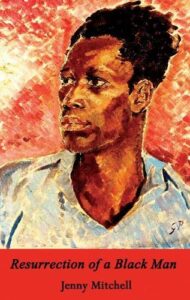
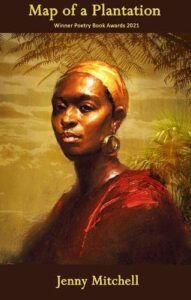
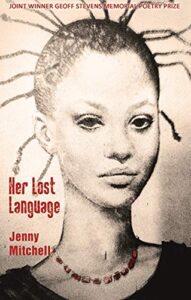

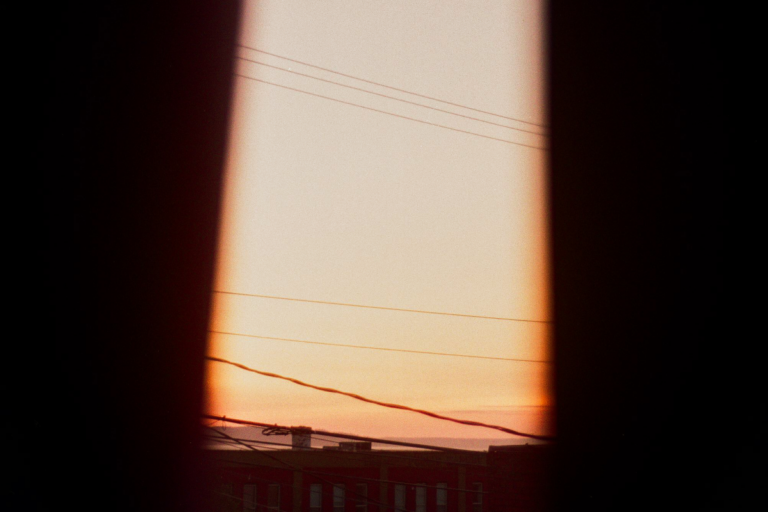
Reflections